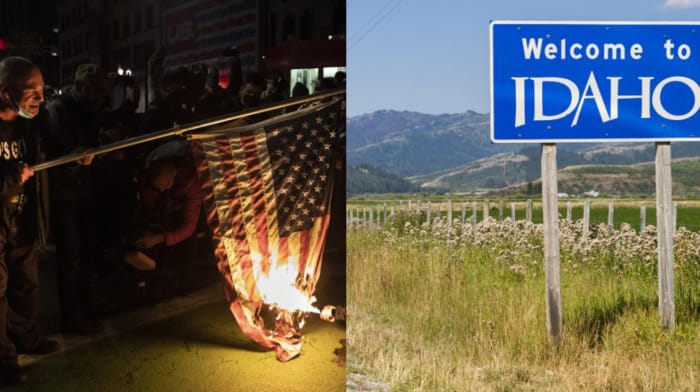Two rural Oregon counties have voted to leave their blue state and join neighboring red state Idaho, in order to escape the liberal state dominated by the cities in the west.
“There’s Hatred There”
The conservative counties of Union and Jefferson voted strongly in favor to “Move Oregon’s Borders” on Tuesday, and split off into Idaho, over fears the liberal western metropolis of Portland and other cities would continue to drag them further to the left.
Portland, long a bastion of radical leftism, even had rioting last night – after Election Day.
“In the United States, the differences between liberal and conservative… there’s hatred there,” said chief petitioner Mike McCarter to the AFP.
“Populated urban areas are controlling the mass of everybody,” the 73-year-old continued.
McCarter, along with others, has stood behind a longer term plan to carve out a “Greater Idaho,” adding counties from Oregon, California, and Nevada to the state, ensuring conservative voters in those rural areas still have a voice.
RELATED: 90 Percent Of Protesters Arrested In Portland In The Past Month Have Had Charges Dropped
Other Red Areas Are Sick Of Blue City Domination
Union and Jefferson Counties aren’t the only areas sick of having their entire states dominated by dark blue cities.
Other states, including Illinois, also had propositions on the ballot to break away from metropolitan areas.
Unofficial results suggested that the decision was wildly popular, gaining in many counties over 70% support.
https://twitter.com/IsaacLudington/status/1324122819878408194
These votes are just the latest in a long history of separation desires from conservative counties away from their liberal urban population centers.
Recent proposals exist all over the map.
For example, there has long been a desire to create the State of Jefferson out of parts of Oregon and California.
Or the State of Superior, combining northern counties of Wisconsin and the Upper Peninsula of Michigan.
Last year, Illinois State Rep Brad Hallbrook created a resolution petitioning Congress to declare Chicago the 51st State in the Union, citing “overreaching” Democrat support on many leftist issues as a reason they should amicably end their relationship.
“Very Emblematic Of Our Rural Divide”
The votes, are, of course, not binding.
Any counties splitting off to join Oregon would require both state and congressional approval, something unlikely to happen.
It does mandate county officials to discuss and continue the plan, however.
Steven Beda, an associate professor of history at the University of Oregon, said that the vote “speaks to a larger political divide in places like Oregon that we should take seriously.”
“It speaks to this longer history of many people in rural Oregon feeling that their identity, as well as the politics and economy, don’t align with the big cities,” he continued.
“It is very emblematic of our rural divide here. That’s the story of American politics.”
